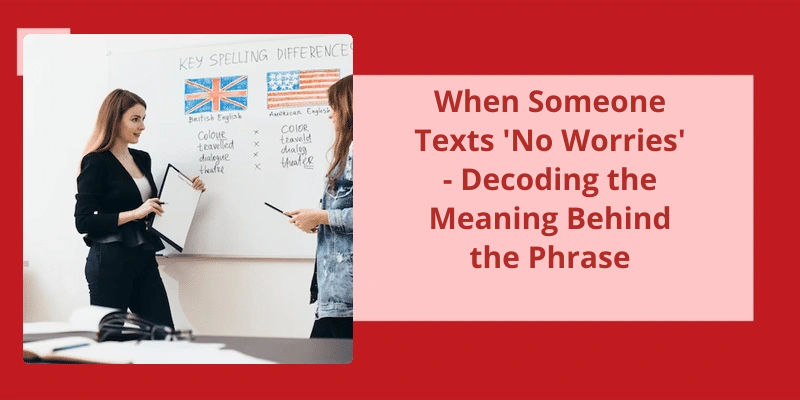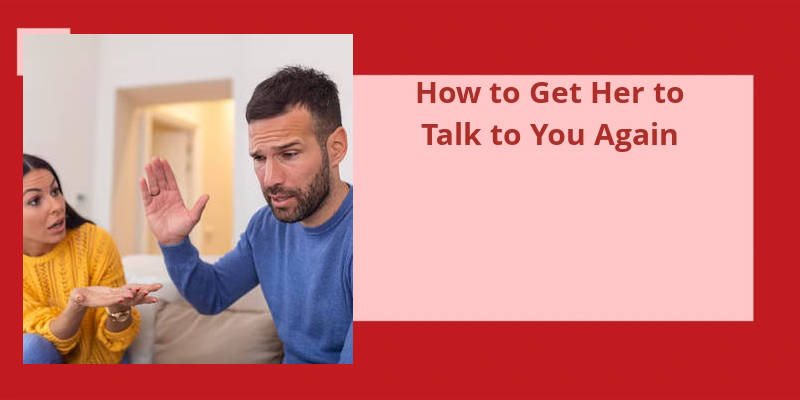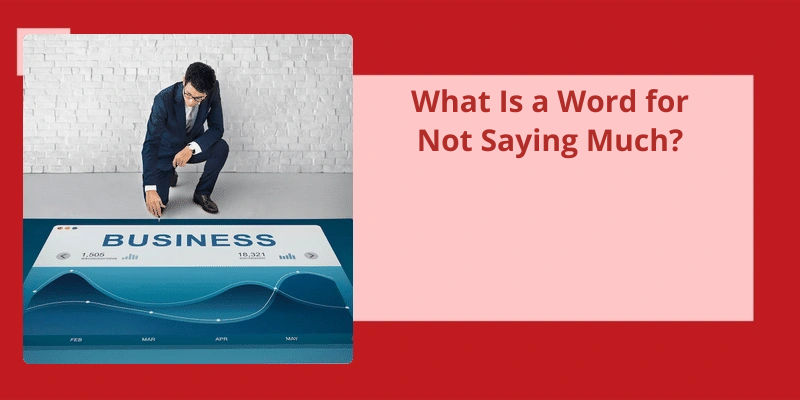In today's fast-paced world, communication is key, and it’s become easier than ever to stay connected with our loved ones, colleagues, and acquaintances through various channels. With the increasing reliance on digital communication, we’ve all come across the phrase "no worries" at some point or the other. But what does it really mean? Does it imply that there were worries before? Or is it simply a polite way to acknowledge that everything is okay? Delving a little deeper, it’s evident that this seemingly innocent phrase has a lot more to it than meets the eye. In this article, we will explore the connotations, implications, and origins of this ubiquitous phrase, shedding light on it’s cultural importance and how it’s evolved over time.
What It Means When Someone Says No Worries?
It’s a casual phrase used to assure someone that a situation isn’t something to be stressed over. In certain regions, the phrase may be shortened to just “No worries” or even “No worries, mate” in Australian English.
The phrase came into prominence in the 1990s, with a big boost in popularity in the United States by the 2000s. It’s become a universal phrase used by people, regardless of their background, with a common greeting being “no worries” or “no problem”.
Besides being used casually, “no worries” can also be used in a more formal context, to reassure someone that any doubts or concerns they’ve will be taken care of. It’s sometimes used as a closing statement by customer service representatives. The phrase can be especially effective when trying to defuse a tense or potentially heated situation.
This usage is common when someone has made an apology or given an explanation for something. If the other person says “no worries” after, it could mean that they don’t take the issue very seriously or aren’t offended by it in any way.
It should be noted that not everyone may appreciate the phrase – some people may interpret it as dismissive or unfeeling, especially if they feel like their concerns aren’t being taken seriously. As with any language, context and delivery can make a big difference in how well the phrase is received.
Examples of Situations Where “No Worries” Would Be an Appropriate Response
“No worries” is an appropriate response for situations where there’s no need to be concerned or stressed out. For instance, when someone apologizes for being a little late, you could say “no worries” to show that there’s no hard feelings and everything is alright. It could also be used to say “it’s okay” or “don’t worry about it” to show that a mistake or inconvenience doesn’t matter.
While saying “You’re welcome” after receiving thanks may seem like the natural response, some experts argue that it can come off as dismissive or egotistical. In fact, phrases like “No worries” have gained popularity as more casual and approachable alternatives. However, some people still view such phrases as unprofessional. So, where do we draw the line? Let’s explore this topic further.
Is It Unprofessional to Say No Worries?
Many people have different opinions about the phrase “no worries” and whether or not it’s unprofessional. Some argue that using this phrase in a professional setting can come across as too casual and may not be appropriate. On the other hand, others believe that it’s a friendly way to communicate with colleagues and clients.
One concern with using “no worries” is that it may suggest that the task at hand was not important or that the person saying it didn’t take it seriously. This can be particularly problematic in certain industries, such as healthcare, finance or law, where details and accuracy matter greatly. In these cases, using a more formal phrase like “thank you for bringing this to my attention” may be more appropriate.
For example, if someone apologizes for a mistake, responding with “no worries” can help put them at ease and show that the mistake was not a big deal. Similarly, if someone is expressing concern about a particular issue, responding with “no worries, we”ve got it covered” can help assure them that they don’t need to worry about it.
It’s also important to be aware of alternative phrases that may be more appropriate in certain situations. Ultimately, the goal is to communicate clearly and effectively with colleagues and clients, while also projecting a professional image.
Examples of Industries or Professions Where Using “No Worries” May Be More or Less Appropriate
Using the phrase “no worries” may be more appropriate in informal industries or professions, such as hospitality or customer service. It may be less appropriate in formal industries, such as finance or law, where a more professional tone is expected.
Conclusion
It’s a simple yet effective way to let someone know that they don’t need to stress or feel anxious about something. Whether it be a small inconvenience or a major problem, saying “no worries” can ease someone’s mind and let them know that everything will be okay. This phrase holds a lot of power in bringing comfort and positivity to those around us. In a world where so many things can cause anxiety and stress, it’s important to remember that sometimes all it takes is a simple message of “no worries” to make someone’s day a little better.






